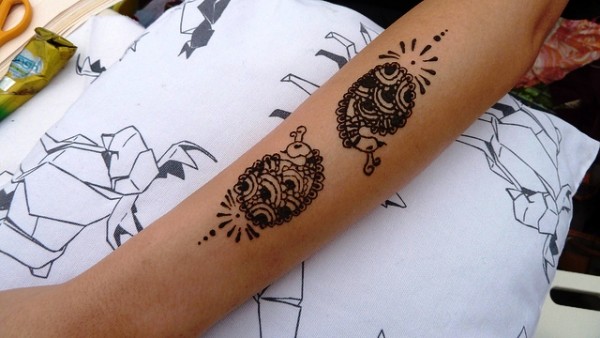FDA Warns against Use of Temporary Tattoo Products

Chemicals in temporary tattoos can cause serious allergic reactions, warn health officials from the U.S. Food and Drug Administration.
Temporary tattoos from henna are used to colors the skin, hair, finger nails and fabrics. These are mixed with coal tar, synthetic dyes and other harmful chemicals like p-phenylenediamine (PPD) to add darker and long lasting color that persists for about a week depending on the concentration of the concoction. Unlike permanent tattoos, these dyes are painless and color the surface of the skin and are extensively used in Asian and African cultures. Both henna and PPD are not approved by the FDA for its use on the skin. Recently, the agency's experts identified a list of side effect that include redness, blisters, raised weeping lesions, loss of pigmentations, increased sun sensitivity and permanent scarring resulted from the use of temporary tattoos.
"Just because a tattoo is temporary it doesn't mean that it is risk free," said Linda Katz, director of FDA's Office of Cosmetics and Colors in the news release.
The agency gathered information from consumers who reported having adverse reactions soon after the application of henna. Some of them were even hospitalized and admitted in emergency rooms to treat skin troubles that permanently scarred and gave a discolored appearance to their skin. Currently, the FDA does not have a record of the number of people who suffered harmful consequences of using the product, however, officials said this information will be released through request under the Freedom of Information Act (FOIA). They urge temporary tattoo users to inform the government of its after-effects.
"If you had a reaction to a temporary tattoo or any cosmetic product, the FDA wants to know," said Katherine Hollinger, an epidemiologist with the FDA Office of Cosmetics and Colors reports the Live Science.
Most cosmetics and beauty products including coloring substances are not allowed in the market without getting FDA's approval and are subject to legal action in case of damage to customers.
May 19, 2014 06:56 AM EDT





